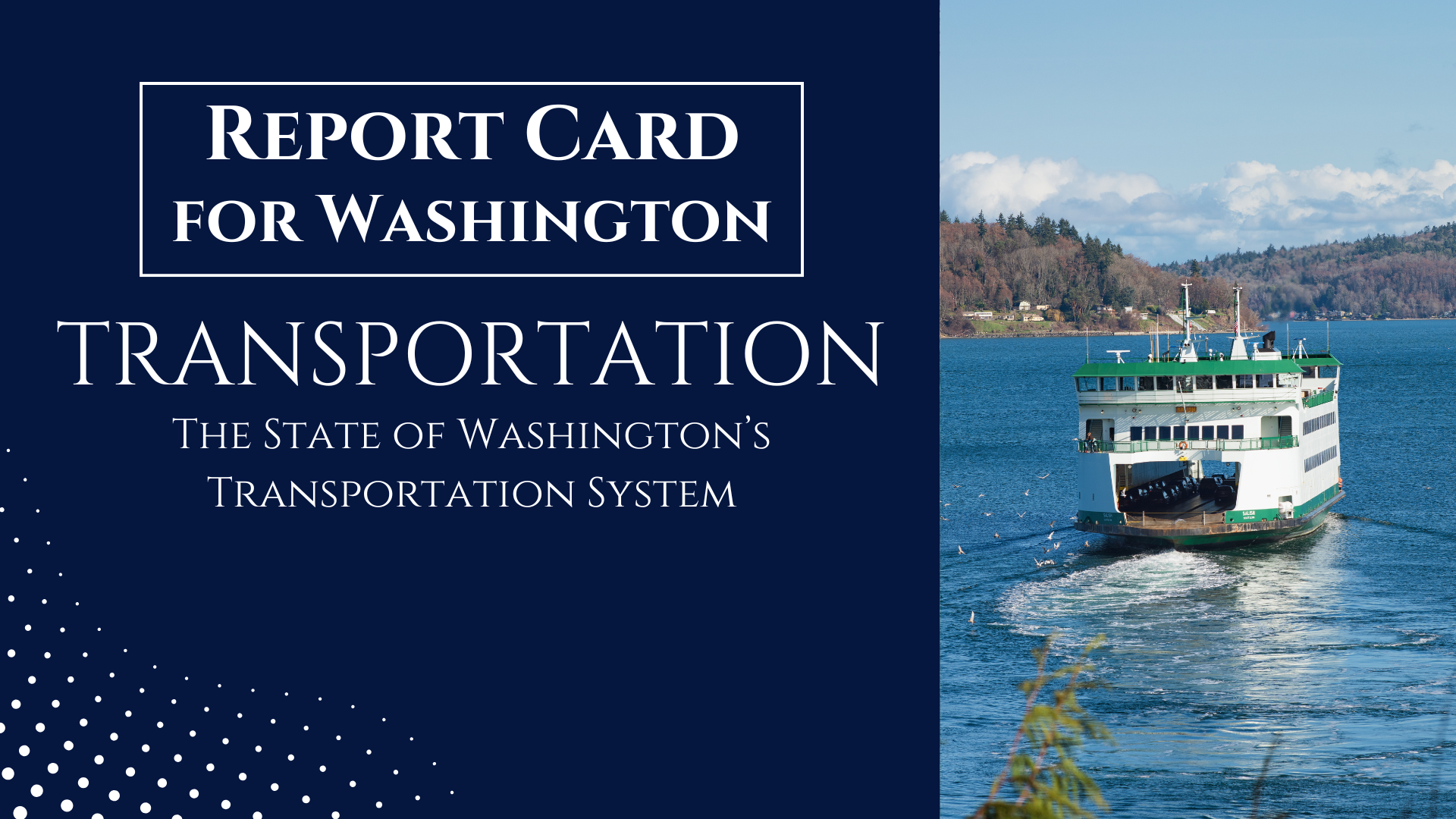Related Articles
The 2019 legislative session is kicking off next week and it looks like Sound Transit’s integrity in securing additional taxing authority in 2016 will consume a good portion of the debate yet again.
Sound Transit is a regional transit agency that imposes heavy taxes and builds and operates Link light rail, Sounder commuter rail, and express buses in parts of King, Pierce and Snohomish counties. The taxes include a motor vehicle excise tax (1.1%), sales and use tax (1.4%), and property tax ($25 per $100,000 of assessed value).
The largest tax increase was approved by voters in 2016 - a 0.8% car tab tax increase on top of the existing 0.3%, bringing the total to 1.1%.
But when taxpayers started receiving car tab renewals in 2017, they were shocked to find out that the car tab tax Sound Transit imposed was significantly higher than what officials led them to expect. In securing additional taxing authority from lawmakers in 2015 and in promoting Sound Transit 3 (ST3) to voters during the 2016 election, officials quietly capitalized on an old, inflated and repealed vehicle valuation schedule so the agency could collect maximum tax revenue from families in the region. No one really understood this – except Sound Transit officials, who chose to keep this as obscure as possible in the authorizing legislation.
Some lawmakers tried to hold the agency accountable and provide tax relief for their constituents in various ways – in 2017 and again in 2018. Both sessions ended without any agreement among lawmakers on how to make the public whole.
This year, Sound Transit officials will be confronted by frustrated taxpayers yet again and on three fronts – at the legislature, at the courts, and at the ballot box. Clearly, this is not a problem that can be ignored.
The Legislature
Here are the bills that have been pre-filed so far, many of which are repeats from the previous two legislative sessions. More bills are likely to come.
Senate Bill 5037: Requires Sound Transit to go back to voters for additional approval if costs exceed the ST3-approved $54 billion, or there are any changes to project scope that deviate from the system plan. This bill is similar to Senate Bill 5892, which would have required a re-vote if capital costs exceed the original budget by 100%.
Senate Bill 5042: Establishes a credit program similar to last year’s Senate Bill 6303, that effectively assesses car tab taxes based on Kelley Blue Book or National Auto Dealer’s fair market values, whichever is lower. The program would provide retroactive credit for tax overcharges already paid and allows Sound Transit to contract with the Department of Licensing for the collection of the taxes only if Sound Transit implements the credit program.
Senate Bill 5043 & Senate Bill 5044: Authorize counties in the Sound Transit taxing district to nullify ST3 taxes if voters in the county approve it through referendum.
Another bill that has not yet been filed but we can expect to see dropped soon is an important reform to the Sound Transit Board’s governance structure. The current appointment structure of the Sound Transit Board insulates members from accountability to the public. Making the Sound Transit Board be directly elected and accountable to voters, rather than being hand-picked by county executives, has been a long-standing recommendation of the Washington Policy Center.
This is surely not an exhaustive list, and we will continue to track legislation as it is filed in both the Senate and House.
The Courts
A class action lawsuit was filed in June of 2018 on behalf of seven taxpayers in King, Pierce and Snohomish counties who have been overcharged by Sound Transit on their annual car tabs. This case is different from legislative attempts to refund car tabs because it is the only attempt being made to truly correct an unconstitutionally-drafted statute.
The court hearing took place in September, with a judge concluding that legal arguments were above her “pay grade,” as she put it, then promptly siding with Sound Transit and against taxpayers.
Joel Ard, the lead attorney in the lawsuit, will be filing an appeal on behalf of the taxpayers. The appeal brief is due next Friday, January 18th. Sound Transit and the state’s response is due about a month after that.
Within three months from today, the court will be fully briefed, and this case will be in front of Division 2 of the Court of Appeals.
I spoke with Mr. Ard, and he noted that, “Only through this litigation can the legislative error from 2015 be corrected by the courts and full refunds of improperly collected car tabs can be issued.”
The Ballot Box
Tim Eyman has announced he has collected enough signatures to send Initiative 976 to the ballot in November. The initiative would cut all car tab taxes, leaving a single $30 flat fee on renewals. This includes the entire Sound Transit car tab tax of 1.1%, as well as vehicle registration and weight fees.
If the legislature chooses not to approve the initiative, I-976 would go to the voters in November 2019. As The Seattle Times points out – while voters approved the taxes, this initiative “would give voters statewide the ability to undo those taxes.” This is a fair choice, since Sound Transit officials misled both lawmakers and voters in authorizing legislation and in the Mass Transit Guide.
The initiative seems to reflect people’s deep frustration with the unaccountable Sound Transit Board's dishonesty and persistent denial of any wrong-doing or error. It is also a reflection of the tremendous, growing tax burden the traveling public feels overall, with little in return in the way of real traffic congestion relief.
We will continue to track all of these efforts and provide updates throughout the legislative session.






